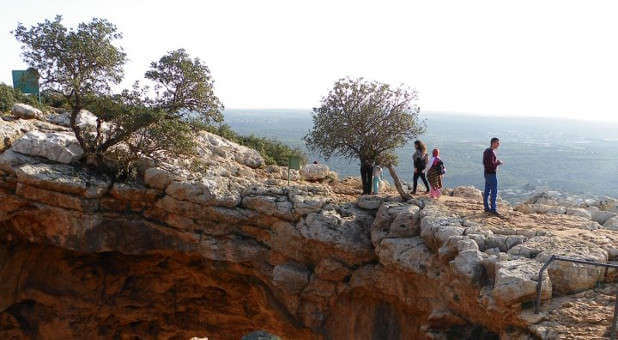I was not always a Zionist. I was a 56-year-old disconnected Jew who never fully recovered from the bullying I received in Hebrew and Sunday school in a small Jewish community in small-town America.
Following my Bat Mitzvah and Confirmation, I went on to college feeling that I had freed myself from what I felt was both a superficial Jewish community life and a religion that I derived little meaning from. Maybe they did the best they could in my small town; on the other hand, maybe the spirit of Klal Yisroel wasn’t fully understood.
I didn’t feel a member of it. At no time during my college years did I seek out campus Jewish affiliation. In my 20s, I spent time exploring Buddhism. Yet somehow that didn’t feel right either. Sitting there, trying to meditate and adopt the philosophies of the Eastern traditions, I ultimately still felt a Jewish identity, although spiritually uncertain and unaffiliated.
It’s a long story and, you can criticize the Orthodox as much as you want, but it was an Orthodox rabbi in Chicago who gently encouraged me to revisit Judaism, that there might be more to this than my original experiences provided. I came back, but only on my own terms. I read, I studied, I fulfilled some commandments, but I never joined a congregation. Then there was Israel.
Israel. I cared about Israel, but from the limits of being inculcated with “we have to protect her because of the Holocaust.” I responded when solicitations came in to raise funds for her needs. When there was something on the news about her, I jumped up to see what it was about.
I was not reluctant to speak up on her behalf if someone spoke against her, albeit without great depth of knowledge of her. Still, I just didn’t know or feel connected to these people in that place thousands of miles away.
When something bad happened to the Israelis, I took it to heart. If something bad happened to the Jews or if a Jew did something that was an embarrassment to the greater Jewish community, I took that to heart also. Still, I never spoke with an Israeli. Where was the opportunity?
There are organizations that bring IDF soldiers to the United States to speak about life in Israel or their time in the military. But I never had a chance to attend. There was always a solicitation for funds and I didn’t always have the money to contribute. Or it was in a Chicago suburb and I didn’t have the means of getting there. Plus, from what I’d read, there was the soldier’s story followed by questions and answers, but not an ongoing dialogue over time.
Then one day, while surfing the Internet, I inadvertently dropped into a website called Friend-a-Soldier. To this day, I have no recollection of the links that landed me on this site. I thought, “What the heck is this?”
I tracked the site for a month to see what it was all about. Who were these people? What were they doing here? What was the character of dialogue with these former Israeli soldiers?
After a month, I wrote them and began an ongoing exchange with one of the volunteers, and that blossomed into a relationship with others who were involved. I asked many questions. I made a nuisance of myself. There was humor, “What’s the thing with Israelis and hummus?”
But then there were the serious questions. Following a terrorist attack, I wrote the same volunteer, “A fifth of the population is sleeping in bomb shelters this week? How do you live like this?” His answer was an attitude toward living that I deeply treasure.
I read what everyone was writing in to the site and what the volunteers wrote back. I had a very powerful exchange with one of the founders on the subject of hate and, particularly, hating one’s enemy.
I discussed with one volunteer the nature of democracy at a time when Israel was debating controversial laws. They made what discovery in technology? In medicine? In the winter months, not every soldier has a warm coat to wear? Lone soldiers carry their laundry home from base on Fridays in plastic bags because there are no backpacks for everyone? The size of the average apartment in Tel Aviv is how big? Cottage cheese costs how much?
Everything was posted for public viewing, making the discussions that much more real.
Finally, after 56 years, I had encountered Israelis and the inquiries began: What did they do? What did they like? How did they live?
My relationship with Israel expanded beyond these very special individuals. I started to think about Israelis a great deal.
For the original article, visit Israelforeverorg.
















































